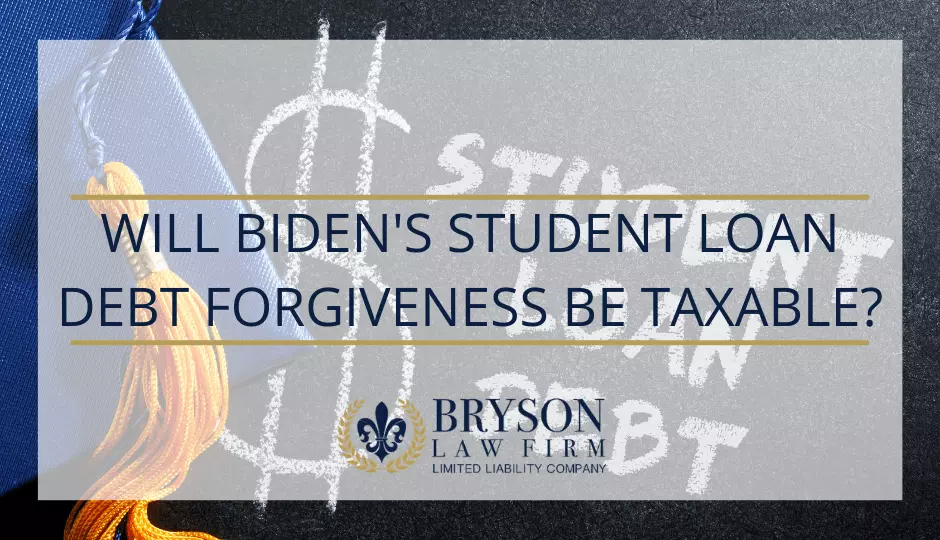With President Biden’s recent announcement that the US Government would forgive up to $10,000 in federal student loan debt - up to $20,000 for Pell Grant borrowers, the question that immediately came to our minds here at Bryson Law Firm, LLC was whether any of the debt forgiveness would be taxable.
In general, cancelled, forgiven, or discharged debt is considered income. The taxable income amount is the amount the Taxpayer was no longer obligated to pay after the cancellation, forgiveness, or discharge. This must be reported on the Taxpayer’s tax return for the year the cancellation occurred. Often times, the creditor sends the Taxpayer a Form 1099-C Cancellation of Debt.
There are exceptions and exclusions to this. One exception is amounts discharged from certain federal, private, or educational student loans.
The American Rescue Plan Act will not require that student debt forgiven between 2021 and 2025 be included in federal taxable income. However, the debt forgiveness may still be taxable at the state level.
Some states such as Pennsylvania and Massachusetts have announced that the cancellation of student loan debt announced by the Biden administration will not be taxable for individual income tax purposes. Other states such as Arkansas, Minnesota, Mississippi, North Carolina, and Wisconsin will likely still consider this taxable income. As of now, residents in those states should be prepared for a state tax consequence as a result of the student loan forgiveness.
If you plan to receive student loan forgiveness under the American Rescue Plan Act and live in a state with income tax, be sure to consult with your Tax Professional to ensure you are prepared and on track for any tax consequences. Questions? Contact Bryson today!























